new to the gluten free journey?
new to the gluten free journey?
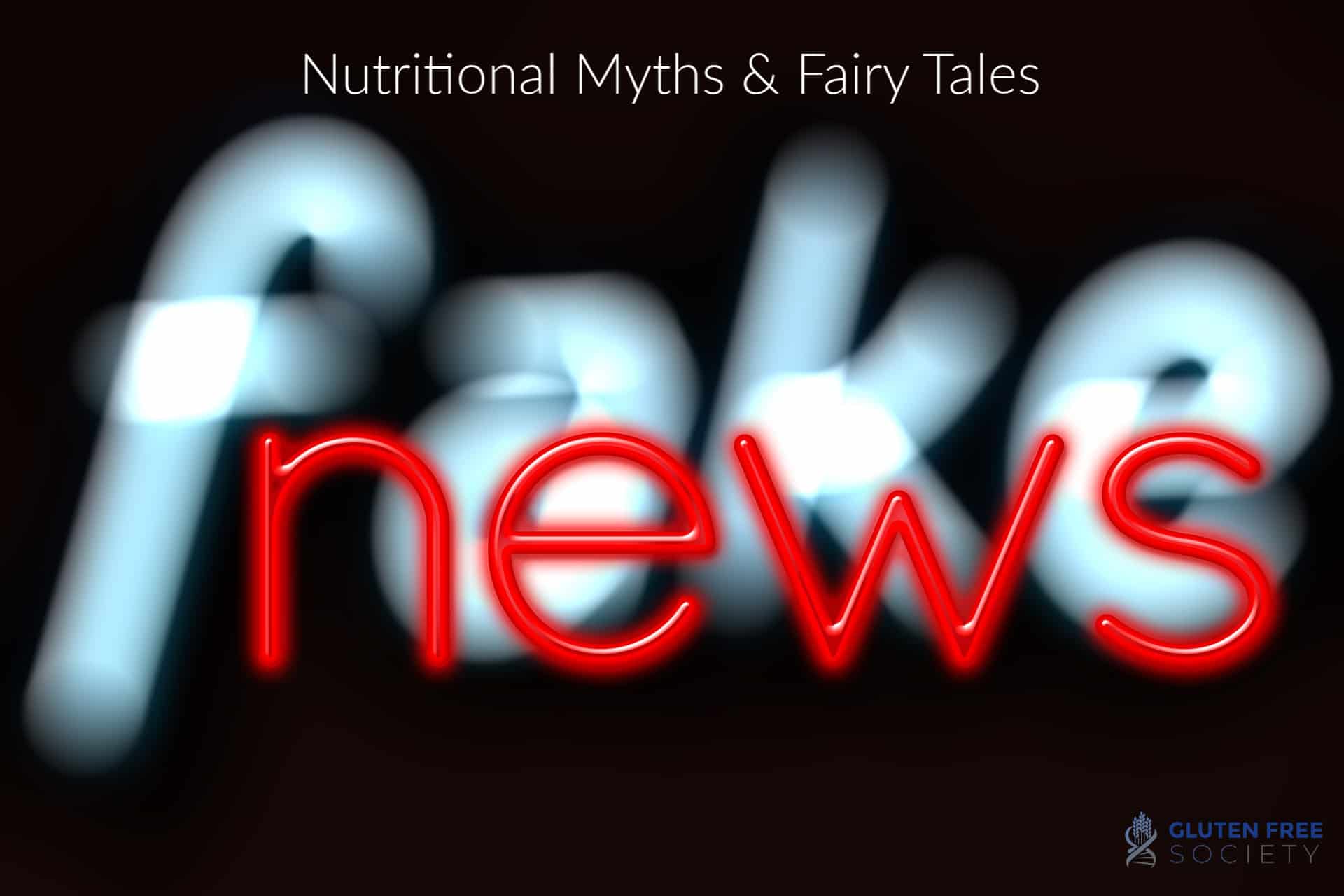

We’ve all been there – we start feeling ill and turn immediately to the internet for answers. While this may prove helpful at times, sources like the internet, television, and sometimes even doctors can provide false information that we accept as truth. Below are seven of these nutritional myths that are commonly believed and if applied can prove harmful over time.
Contents
Toggle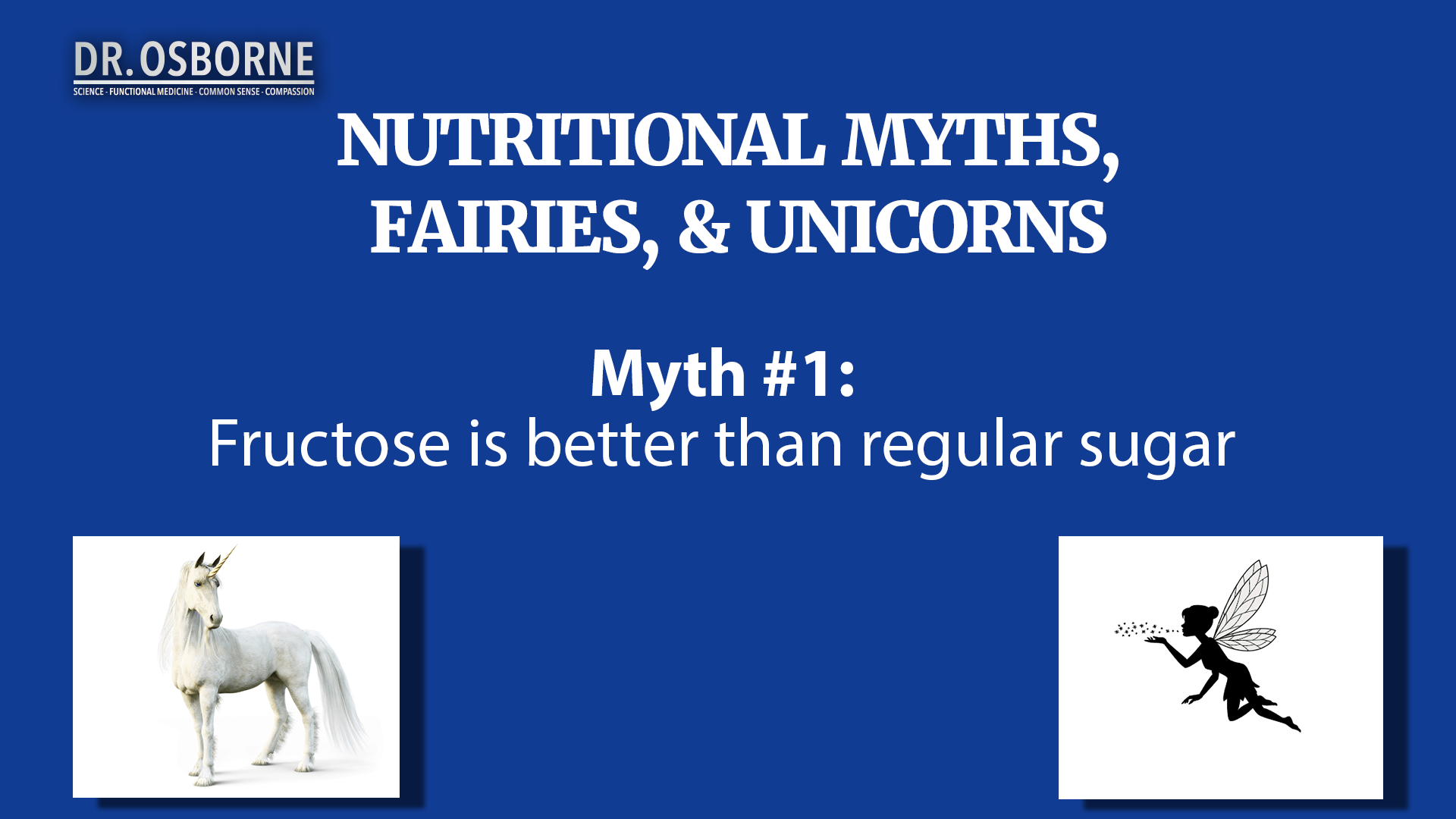
While it is known that sugar is not good for the body, some have succumbed to nutritional myths that fructose or high fructose corn syrup is okay to eat. Fructose is, however, a highly refined, processed food that is extrapolated primarily out of corn. Many companies are starting to call this ingredient a “natural sweetener” which further propels this myth and portrays it as an easy to digest item.
The reality is, that unlike regular sugar, it must be metabolized and then broken down in the liver. Unfortunately, it is starting to appear everywhere. Looking at labels closely, you will see it in cereal, bread, candy, and even gum. Eventually, overconsumption leads to an elevation in triglycerides which can, in turn, cause metabolic syndrome.
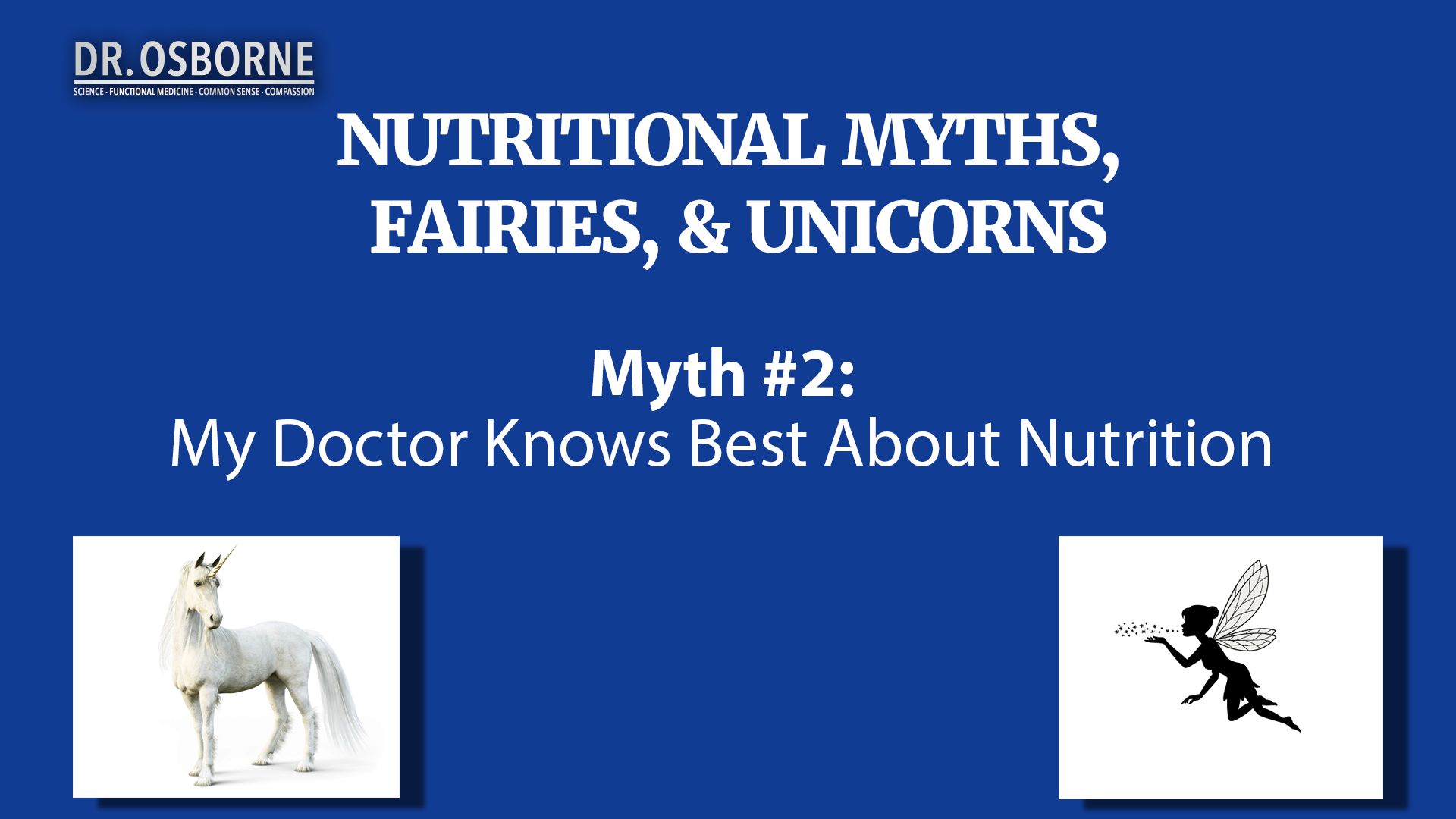
Another one of these nutritional myths is that many believe is that doctors know best, especially when it comes to nutrition. However, in regards to education, most doctors have received less than seven hours of nutrition training and are not familiar with how diet can truly impact the body.
If searching for a doctor that will be able to diagnose from a perspective of nutrition, look for one with the distinction of DACBN or Diplomat of the American Clinical Board of Nutrition. This means that he or she has completed 300 hours of nutrition training and has been certified through the governing body. While there are only about 350 doctors with this designation, hopefully, more will come to see the value of understanding the role of diet on disease and will seek further education as well.
Just because an item has the word “vegetable” in it does not necessarily mean it is healthy and this applies to vegetable oil as well. Most of the time it is derived from genetically modified corn, which is a grain, or soy, which is a legume and can include seed oils like wrap seed or canola oil.
Vegetable oil is also high in omega six which can throw off the delicate balance between omega six and omega-three fatty acids. When this happens, there is a risk of chronic inflammatory problems including heart disease and cancer.
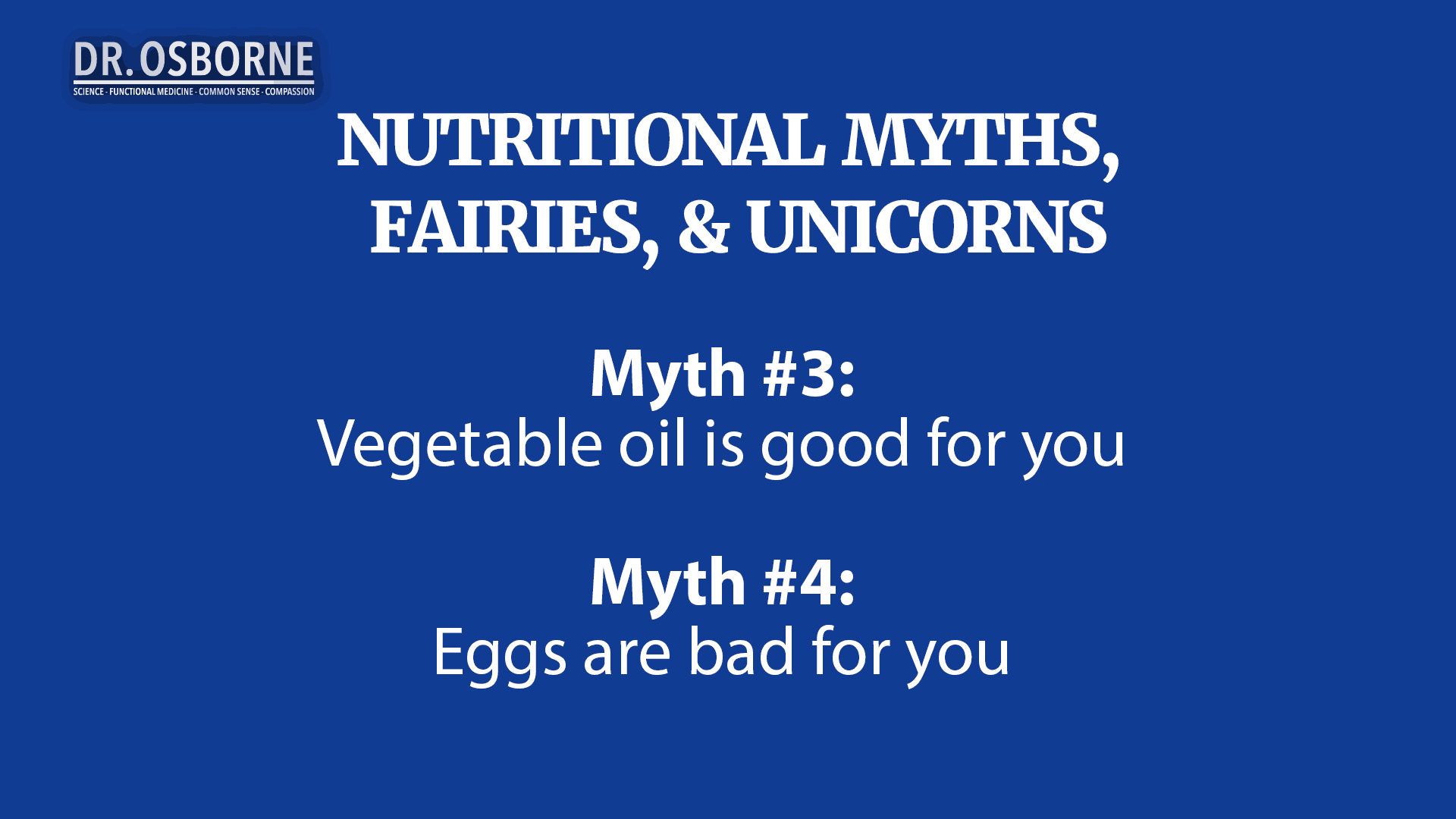
We’ve all heard it before – cholesterol is bad for you and since eggs are high in cholesterol, you should stay away from them. In truth, though, cholesterol really doesn’t increase your risk for disease and it doesn’t contribute to heart disease unless an individual has hyperlipoproteinemia, a genetic form of hypercholesterolemia
Eggs are actually one of the best sources of high-value protein and are a great addition to a vegetarian diet. They contain B vitamins and have essential amino acids that help the body to heal, repair, and maintain muscle mass. The cholesterol in them helps with the production of sex hormones in both men and women and new studies are showing that it may even help maintain long term memory.
With so many people partaking in the Keto diet, which includes consuming large amounts of protein, there are several myths emerging about its impact on the body. One of these myths is that eating too much protein can cause kidney damage or disease. Unless an individual has failing kidneys or pre-existing kidney disease, this idea is not true at all.
Protein in and of itself will not affect the kidneys in high doses, but it’s important to have a general idea of how much protein one should be consuming. On average, an individual needs .8 grams of protein per kilogram (pounds divided by 2.2) of body weight. This need will increase if an individual is trying to build muscle mass or is sick and the body needs protein to produce antibodies to fight infection. Under these circumstances, most should strive to get around 1.5 to 1.6 grams of protein per kilogram.
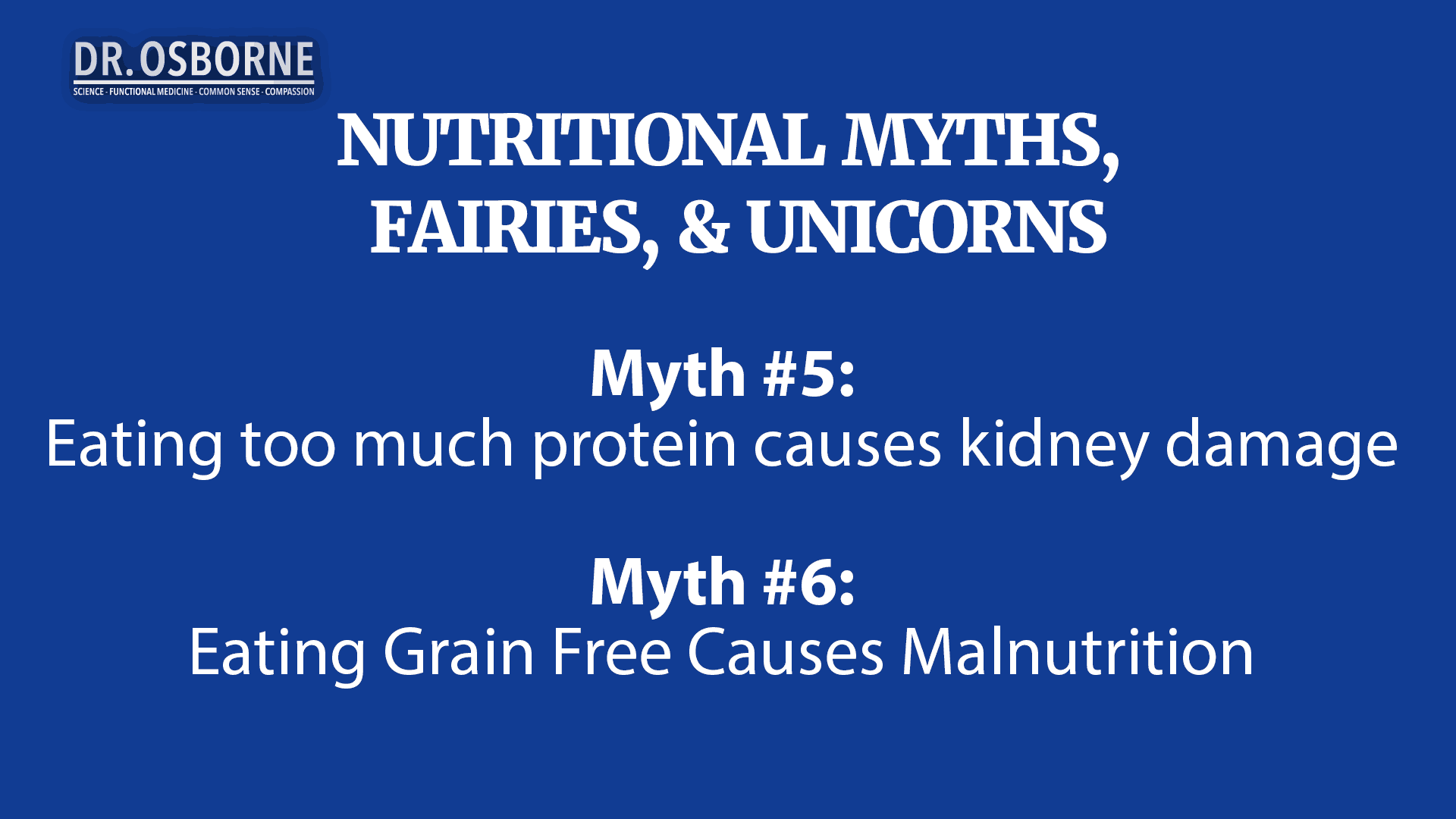
While grain may come from the ground, it doesn’t mean that it is particularly healthy or good for the body. Many doctors are starting to claim that a grain-free diet can cause malnutrition because individuals are not getting vitamins and minerals the body needs. However, there is no evidence that proves this, and in fact, most evidence supports quite the opposite.
If an individual partakes in a grain-free diet eating processed gluten or grain-free foods, there may be some deficiencies; but those with diets rich in fruits, vegetables, and organ meats are receiving nutrient-dense meals. Studies have shown that those consuming grain with a grain sensitivity will have on average five deficiencies, while those choosing to go grain-free typically have less than one.
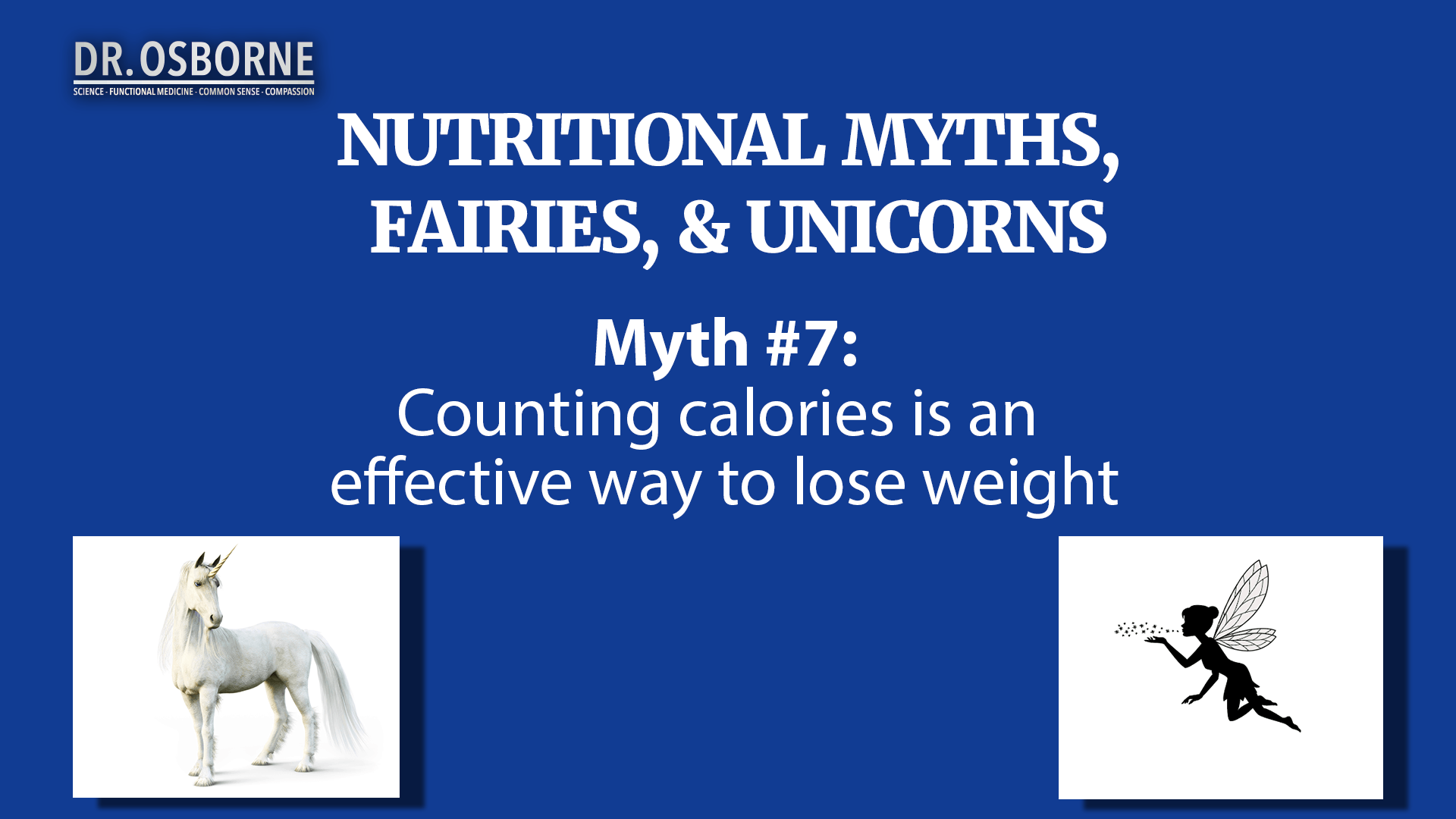
Another myth that many believe is that calories in equals calories out, and while you may be able to limit calories to lose weight, not all calories are created equal. For example, one gram of sugar has four calories, but it has no nutrients. Therefore, the body will expend stored nutrients in order to digest the sugar, necessitating a need for nutrient-dense foods.
Food impacts the body in so many ways like telling it how to heal, repair, maintain and grow. Choosing the wrong types of calories can cause inflammation, disrupt hormones, and even affect metabolism. Therefore, it is important to choose nutrient-dense foods that fit the biochemical individuality of each person. Ultimately, the quality of food should be of more importance than the number of calories being consumed.
While you want to be able to trust your doctor, don’t be afraid to ask questions. Be your own advocate, get a second opinion, do research. Not only will you learn in the process, but you just may save your life.
Written and medically reviewed by Dr. Peter Osborne. Updated on February 28, 2020